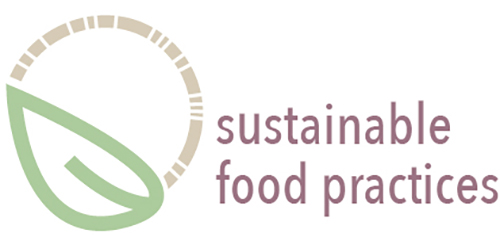
“Analysis of the sustainability transition in Luxembourg’s foodscape. How the creation of infographics allows for the depiction of systemic complexity”
11th May 2021
The Sustainable Food Practices team gave a lecture as part of the Science and citizens meet challenges of sustainability (SCCS) course at the University of Luxembourg. The topics is ‘Analysis of the sustainability transition in Luxembourg’s foodscape. How the creation of infographics allows for the depiction of systemic complexity’.
Abstract
Local or regional food systems are complex networks of food production, distribution, and consumption, embedded in interwoven relations between levels, spheres, sectors and actors, as well as the resulting interdependencies of the global food system (Gliessman 2015) – often referred to as “foodscapes” (Mikkelsen 2011).
Describing a foodscape whose actors and actions form a non-unified whole is problematic, but a visual depiction may unravel its complexity. However, while many approaches address food from a systemic point of view, they rarely qualify or empirically document the entire food system. The challenge of creating such an empirically qualified documentation lies in how to map actors and their multiple activities, while taking into account their relationships.
This lecture shows how the food system can be envisioned as a dynamic multi-scalar and multi-sited foodscape by drawing from visual tools like infographics to depict complex systems. We show how infographics can contribute to increase and improve the capacity to grasp and work with complexity that evolves from the food system. During the lecture, we present the methodology and the theory allowing us to analyse the current state of the system and display it in infographics. Through empirical research, we mapped all the broad actor groups and documented specific examples of their activities, showing the diversity of the actor groups within Luxembourg’s food system. We will share and discuss two concrete infographics developed during 2020 and 2021 by our team. The first depicts all the main actor groups of the food system, whereas the second refines the main groups into and feeds each group with examples from the Luxembourgish foodscape. An analytical version of these infographics representing relations between actors, drivers, gaps, lock-ins, leverage-effects, as well as externalities of the food system, is in the making and will be briefly addressed and put up for a discussion asking how such an approach allows for understanding the opportunities and challenges of processes of a sustainable food transition.
Rachel Reckinger, Diane Kapgen, Helena Korjonen
References
Gliessman, Stephen R. 2014. Agroecology: The Ecology of Sustainable Food Systems. 3rd ed. Boca Raton: CRC Press.
IPES Food. 2020. “COVID-19 and the Crisis in Food Systems: Symptoms, Causes, and Potential Solutions.” (April):1–11.
Mikkelsen, Bent Egberg. 2011. “Images of Foodscapes: Introduction to Foodscape Studies and Their Application in the Study of Healthy Eating out-of-Home Environments.” Perspectives in Public Health 131(5):209–16.
Reckinger, Rachel, Diane Kapgen, and Maria Helena Korjonen. 2020. “An Infographic Synopsis of Luxembourg’s Food System.” Forum Für Politik, Gesellschaft Und Kultur in Luxemburg 408:39–42.
Reckinger, Rachel. 2020. “Reprise de Conscience de La Saisonnalité via La Régionalité.” Pp. 247–65 in L’alimentation au fil des saisons: La saisonalité des pratiques alimentaires, edited by C. Adamiec, M.-P. Julien, and F. Régnier. Tours: Presses Universitaires François Rabelais.
Reckinger, Rachel. 2020. “The Resourcefulness of Luxembourg’s Food System as Put to the Test by the Coronavirus Lock-Down.” in The Ends of Humanities – Volume 2: Self and Society in the Corona Crisis. Perspectives from the Humanities and Social Sciences, edited by G. Mein and J. Pause. Melusina Press.
Lectures

“Sustainable Development in Practice”
January – June 2021
Dr. Rachel Reckinger is a co-organiser and co-instructor alongside Harlan Koff and Julia Ros Cuellar on the course ‘Sustainable Development in Practise’. This course is part of the Masters in European Governance.
This course introduces students to the most important themes and challenges related to sustainable development through interactive dialogue with development practitioners on different continents. The course puts students in touch with development actors who can present the day-to-day challenges that the conception and implementation of sustainable development policies present as well as the strategies utilized to overcome these issues. Through these exchanges, students are introduced to the main issues, concepts and theories in sustainable development.
The course is organized around three sections. First, students will meet with the course instructors who will introduce the conceptual and methodological bases for research on development policy. Students will receive background training and they will be prepared for participative learning once the exchanges with practitioners begin. The second part of the course will be composed of discussions with practitioners where students will have the opportunity to pose questions concerning the definition and implementation of sustainable development strategies. During the third and final part of the course, students will meet with instructors and their counterparts in order to discuss the most salient issues that arose during the discussions with practitioners.
List of course speakers:
25/02 : 17:00-19:00 – Kapuscinski Lecture: Wanjira Mathai
11/03 : 16:00-17:30– Christopher Lilyblad, UNDP, Cap Vert
25/03 : 16:00-17:30– Sherie Simms, The Nature Conservancy, Yucatan, Mexico
14/04 : 16:00-17:30- Jeannot Behm and Daisy Warner, Commune d’Esch-sur-Alzette
22/04 : 14:00-15:30 – Claude Petit (co-founder of the CSA Krautgaart) and Annick Putz (coordinator of Luxembourg’s national network of CSAs)
06/05 : 14:00-15:30– Francesco Ajena Policy Advisor, International Panel of Experts on Sustainable Food Systems (IPES-Food)
Click here to read the rest of the course syllabus
Events

“Sustainable food systems and the governance role of civil society multi-stakeholder initiatives”
15th October 2020
Dr. Rachel Reckinger gave this lecture as part of Professor Dr. Harlan Koff’s course, ‘International Development, Sustainability and Policy Coherence’.
Abstract:
What is a food system – and a sustainable one on top of it? This lecture will show how the food system can be envisioned as a dynamic multi-scalar and multi-sited foodscape by drawing from visual tools like infographics, and how these tools can increase the capacity to grasp and work with food system complexity and transformation. I will in particular focus on the governance role of civil society multi-stakeholder initiatives.
Lectures

“European Union Food Systems – how Luxembourg can innovate with governance pathways”
30th September 2020
Dr. Rachel Reckinger gave this lecture as part of Professor Dr. Harlan Koff’s course, ‘Regionalisms in World Politics’.
Abstract:
Contemporary food systems in developed countries have proven to be largely unsustainable: apart from providing food security and food safety to their national populations, they entail considerable negative environmental and health externalities, fail to address rural poverty throughout the world and create and foster power imbalances in food chains, and social injustice on different levels. This lecture shares preliminary findings from a systemic analysis of Luxembourg’s transnational food system. I will show how the food system can be envisioned as a dynamic multi-scalar and multi-sited foodscape by drawing from visual tools like infographics, and how these tools can contribute to increase the capacity to grasp and work with food system complexity. I end by discussing potential pathways for enhanced food system resourcefulness – in environmental terms, economical ones and in terms of equity and access to knowledge.
Lectures

“Food Supply Chains and Safety: Impact of Covid-19 and Aftermath”
24th June 2020, 17:00-18:00
In this webinar, Dr. Rachel Reckinger, Jack A. Bobo (CEO of Futurity) and Georges Eischen (CEO of La Provençale) discussed the impact of Covid-19 on food supply chains and safety.
Even before the coronavirus pandemic hit us, we worried about the sourcing and safety of the food we buy and consume – then, from the very beginning of the Covid-19 crisis, everyone was affected by disruptions in food and grocery supply chains worldwide, on the most basic level: mass shortages of food stocks in retail outlets due to production shutdowns and mangled quality and sourcing along supply chains.
Some questions that were tackled in this webinar are: What is the situation now and how can we optimize food supply chains and safety for a better future? How can we best prepare for a possible second wave of the coronavirus, or another major disaster?
Lectures

“Einführung in die Kultur- und Sozialanthropologie”
17th May 2017
Dr. Rachel Reckinger presented ‘Von den Food Studies zur Food Literacy: Eine engagierte Reise durch die kulturanthopologische Erforschung der gesellschaftlichen Zusammenhänge des Essens’ (From Food Studies to Food Literacy: A Journey through cultural-anthropological research into the social context of food) at the ‘Einführung in die Kultur- und Sozialanthropologie’ (introduction to sucltural and social anthropology) conference organised by Elisabeth Boesen at the University of Luxembourg.
Find more about the event here
In her presentation she discussed:
- Main assumptions in food studies
- Socio-economic and gender differences in cooking as well as in food consumption
- Environmental Impact of our Diet
- Food Literacy: Daily Consumption is Political
Lectures

“Systemic analysis of the sustainability transition in Luxembourg’s foodscape. Methodological and theoretical framework”
23rd April 2020
17:15-18:30
Sustainable Food Practices gave a lecture in the course programme of ‘Science and Citizens meet Challenges of Sustainability (SCCS)’ run Dr. Ariane König at the University of Luxembourg. Dr. Rachel Reckinger, Dr. Diane Kapgen and Dr. Korjonen presented their research into depicting the food system of Luxembourg; how an infographic will provide an overview of the current state of the food system in order to understand the challenges, barriers, opportunities and leverage points in making the system more sustainable and resilient.
Abstract
Contemporary food systems in developed countries have proven to be largely unsustainable: apart from providing food security and food safety to their national populations, they entail considerable negative environmental and health externalities, fail to address rural poverty throughout the world and create and foster power imbalances in food chains, and social injustice on different levels (De Schutter, 2017). Given these facts, researching the transition processes towards a more sustainable food system and culture from a systemic approach by focusing on the involved actors from the four interdependent spheres of governance, production, diffusion and consumption as well as their potential optimisation is primordial.
This lecture discusses how such an approach allows for understanding the opportunities and challenges of processes of a sustainable food transition by sharing preliminary findings from a systemic analysis of Luxembourg’s transnational food system. We show how the food system can be envisioned as a dynamic multi-scalar and multi-sited foodscape by drawing from visual tools like infographics, and how these tools can contribute to increase the capacity to grasp and work with food system complexity. We present the methodology and the theory allowing us to analyse the current state of the system (including interrelationships, pressure points, gaps,blockades and opportunities), and to elaborate potential pathways for optimization of different leverage points within the system.
Rachel Reckinger, Diane Kapgen, Helena Korjonen
See the Couse Description here
See the Course Schedule here
Readings:
Reckinger, R. (2018). Social Change for Sustainable Localized Food Sovereignty. Convergence between Prosumers and Ethical Entrepreneurs. Sociologia del Lavoro, 152(4).
Reckinger, R. (2019). ‘Pas de fraises pour Noël’. Le rôle de la régionalité locavore dans la (re)prise de conscience de la saisonnalité des aliments . In C., Adamiec, M.-P., Julien, & F., Régnier, L’alimentation au fil des saisons. La saisonnalité des pratiques alimentaires. Rennes, France: Presses Universitaires de Rennes.
Events

Teaching “Einführung in die Kultur- und Sozialanthropologie”
17th May 2017
Dr. Rachel Reckinger presented ‘Von den Food Studies zur Food Literacy: Eine engagierte Reise durch die kulturanthopologische Erforschung der gesellschaftlichen Zusammenhänge des Essens’ (From Food Studies to Food Literacy: A Journey through cultural-anthropological research into the social context of food) at the ‘Einführung in die Kultur- und Sozialanthropologie’ (introduction to sucltural and social anthropology) conference organised by Elisabeth Boesen at the University of Luxembourg.
Find more about the event here
In her presentation she discussed:
- Main assumptions in food studies
- Socio-economic and gender differences in cooking as well as in food consumption
- Environmental Impact of our Diet
- Food Literacy: Daily Consumption is Political


